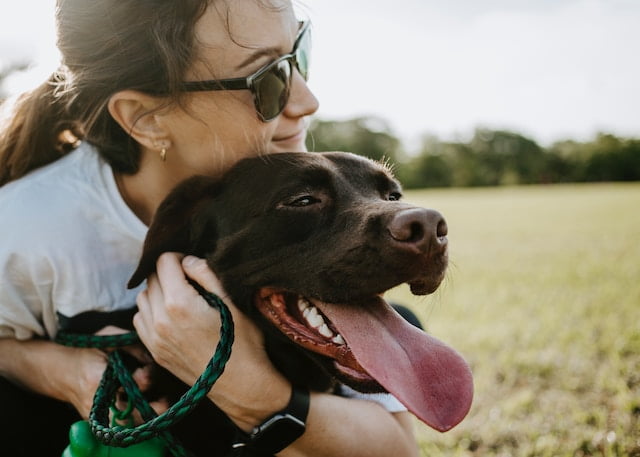Attention all pet owners! Have you ever been bitten by your furry friend? Or maybe you’ve heard of someone who has had a negative encounter with a pet. While pets can be incredibly loving and loyal, they are still animals with natural instincts that can lead to injury incidents. In this blog post, we’ll discuss the importance of understanding why pets bite and how to prevent these situations from happening in the future. So grab a cup of coffee or tea, sit back, and let’s dive into the world of pet behavior!

Understanding Pet Bites and Injury
Teeth wounds are usually clean and have well-defined edges. They often bleed heavily and can be very deep. Nail wounds are usually jagged and may be infected. They often don’t bleed as much as teeth wounds but can be just as deep.
It’s important to clean any wound immediately with soap and water. You should then apply pressure to the wound with a clean cloth to stop the bleeding. If the bleeding doesn’t stop, or if the wound is more than a quarter inch deep, you’ll need to seek medical attention.
Once the bleeding has stopped, you can start thinking about how to prevent infection. Wounds that are more than 12 hours old or that show signs of infection (redness, swelling, pus) require professional medical care. For smaller wounds, you can use an over-the-counter antibiotic ointment and a bandage. Be sure to keep the wound clean and dry, and change the bandage regularly until it heals.
If you got bit by someone’s pet, your options vary depending on the severity of the bite. If it’s a minor wound, you may be able to take care of it yourself. But if the wound is deep or if there’s any chance that the pet was carrying rabies or another disease, you’ll need to get medical help right away. A personal injury lawyer can help you understand your rights and options in this situation. Plus, if you had to seek medical attention, a lawyer can help you recover the costs from the pet’s owners.
Causes of Pet Bites
There are many potential causes of pet bites. Some bites occur because the animal is feeling threatened or afraid. Others may be the result of excitement or playfulness that gets out of hand. And in some cases, an animal may bite out of aggression or anger.
Some common causes of pet bites include:
• Fear: An animal may bite if it feels scared or threatened. This can happen if someone tries to approach the animal too quickly or forcefully, or if the animal is not used to being around people.
• Excitement: A dog or other pet may become so excited during playtime that it forgets its own strength and ends up biting unintentionally.
• Aggression: Pets may become aggressive for a variety of reasons, such as if they feel threatened by another animal or person if they’re protecting their territory, or if they’re simply in a bad mood.
Infographic Provided By car injury attorneys Atlanta Company, Van Sant LawHow to Prevent Pet Bites and Injury
As much as we love our pets, they can sometimes be unpredictable. Pets can bite or scratch when they feel threatened, anxious, or even playfully. While most pet bites are minor, some can cause serious injury, infection, and even death.
There are steps you can take to prevent your pet from biting or injuring you or others:
• Be aware of your pet’s body language. If your pet is showing signs of stress or anxiety, such as pacing, panting, or yawning, try to calm them down before they have a chance to bite.
• Don’t put your face close to your pet’s mouth. Even if your pet is just trying to give you a kiss, their teeth can accidentally scrape your skin and cause an infection.
• Teach children how to safely interact with pets. Show them how to approach a new animal slowly and let the animal sniff them before trying to touch it. Children should also know not to pull on an animal’s tail or ears.
• Spay or neuter your pet. Animals that have been spayed or neutered are less likely to bite than those that haven’t.
• Socialize your pet early in life. Pets that are used to being around people and other animals are less likely to bite out of fear or aggression.
Signs That Your Pet May Be Becoming Aggressive
1. Growling or baring teeth: This is a clear sign that your pet is feeling threatened or angry. If you see this behavior, remove whatever is causing the stressor and provide a safe space for your pet to calm down.
2. Showing aggression toward other animals: If your pet starts growling, snapping, or trying to attack other animals, this is a serious sign of aggression that needs to be addressed immediately.
3. Acting out when handled: Pets who become aggressive when being handled are often feeling pain or discomfort. If you notice this behavior, take your pet to the vet for an examination.
4. Sudden changes in behavior: Aggression can sometimes be caused by underlying health problems, so sudden changes in behavior should always be addressed by a veterinarian.
Treatment for Pet Bite Injuries
When a pet bites, it’s important to seek medical attention right away. Even if the wound doesn’t look serious, there’s a risk of infection. If you’re unable to get to a doctor or hospital immediately, follow these steps:
– Clean the wound with soap and water.
– Apply pressure to stop the bleeding.
– Apply a clean bandage.
– Keep the wound clean and dry.
– Watch for signs of infection, such as redness, swelling, or pus.
If you have any concerns about the bite or your health, call your doctor or go to the emergency room.

Pets can be wonderful companions, but it is important to remember that they are still animals and have the capacity to bite. By understanding more about when pets bite and taking preventive measures, we can minimize the risk of injury incidents. Remember that prevention is always better than cure, so take steps now by familiarizing yourself with pet behavior signals and providing your pet with positive reinforcement training – this will help ensure a happy home environment for both you and your furry friend!




